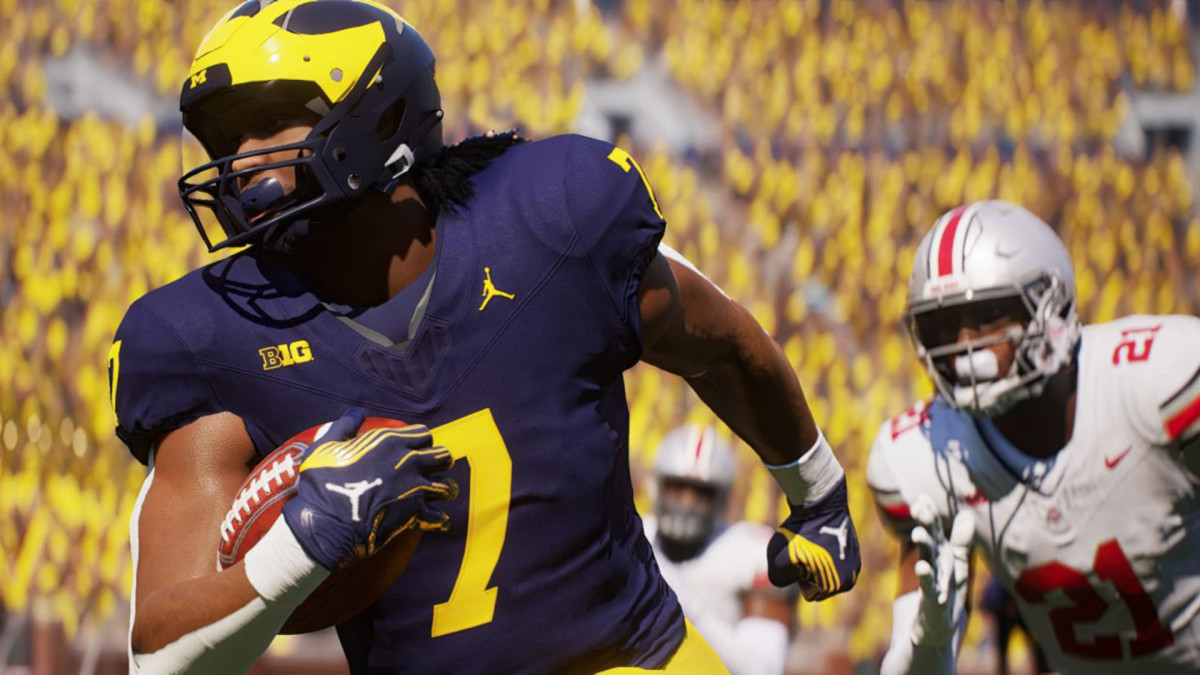
On July 19th, 11,000 college football players took to the virtual football field nationwide after being sidelined for over a decade.
Electronic Arts Inc. (EA) 's new videogame, College Football 25 (CFB 25), marks the first time college athletes have seen themselves in a video game since the discontinuation of EA's original college football game in 2013 due to a series of lawsuits.
NIL changed the game on both the real and virtual field
EA Sports used to produce yearly NCAA video games that omitted player names, but the virtual players were near-exact replicas of the real athletes. This spurred legal disputes over the company's use of the players' likeness for profit. Meanwhile, the players could not receive any financial compensation due to NCAA rules at the time, leading to the discontinuation of the series in 2013.
However, the U.S. Supreme Court's 2021 ruling on name, image, and likeness (NIL) fundamentally changed the game. The ruling reversed previous prohibitions against paying amateur college players, allowing collegiate athletes to accept endorsements and sponsorships, allowing the cashflow floodgates to open and create a $1 billion market.
EA used this ruling to resurrect its CFB game, which is now more detailed than ever. But to get to this point EA dedicated over $6 million to ensure players' participation.
Bringing 11,000 football players to (virtual) life
One of EA's most popular games/franchises is its Madden NFL Series.
To create realistic replicas of professional players, EA game developers travel across the country to take 3-D scans of each player. This technique, while creating extremely accurate virtualized avatars of the athletes, is not feasible for 11,000 college players.
Because finalized college rosters aren't available until late spring, and the game's set release was for mid-July, the developers had to act fast in perfecting and loading their players.
AI turned out to be the solution.
EA used AI technology to create the athletes' video game doppelgängers in seconds through photos provided by their colleges, thus creating detailed players on an unprecedented timeline and scale.

Electronic Arts
More Business of AI:
- The big green price of AI dominance can’t be ignored anymore
- Google falling behind climate goals thanks to AI ramp up
- Analyst reboots Microsoft stock price target on AI integration
Voices from the field
To gain insight into players' thoughts on EA's execution and process of College Football 25, Indiana Offensive Lineman Bray Lynch, Cal Berkeley Offensive Lineman Ty Knape, and Kansas University Wide Receiver Keaton Kubecka shared their thoughts on the NIL process with TheStreet.
EA offered each player $600 and an advanced copy of the game. Meetings regarding the NIL deal began in the spring, with Lynch noting that one of the team's NIL directors explained the process through the Compass NIL App, an app designed to streamline NIL communication with athletes. Kubecka said they were even able to sign their contracts through the app.
Knape noted that while EA effectively communicated their agreement, they dropped the ball on updating players on the timeline of their benefits.
The deal structure was the same for most players. Lynch explained that the deal was straightforward: accept the agreement and be in the game or not. Knape added that EA reserves extra promotional packages and compensation for bigger names.
While neither Lynch nor Knape can play as themselves in the game because they are offensive linemen, Lynch found it amazing to see himself represented by an avatar bearing his name and physical traits. The game has more features for positions such as wide receiver, so Kubecka has more opportunities and options to play himself.
Regarding the new development of AI-generated players, there have been mixed reviews on their appearances. Kubecka told TheStreet that being in a video game has always been his dream, so the entire experience has been rewarding. Knape thought EA did an excellent job on his character design, but some of his teammates were a little less than satisfied with their character designs.







